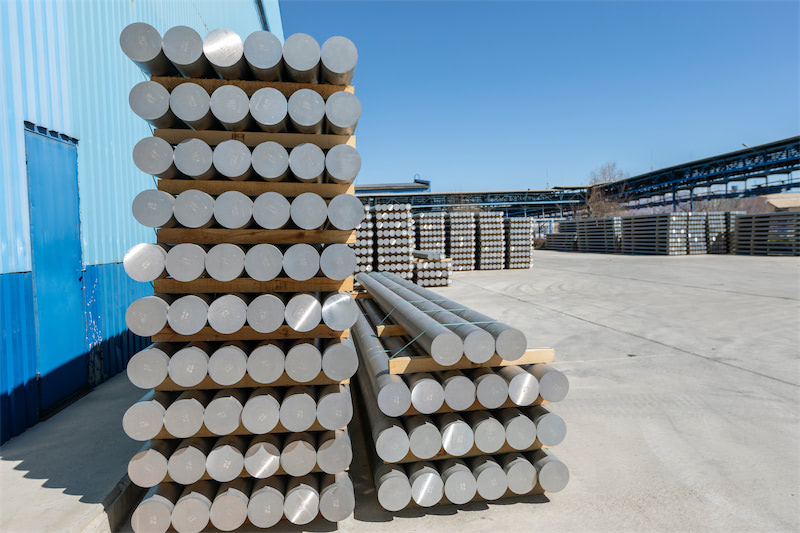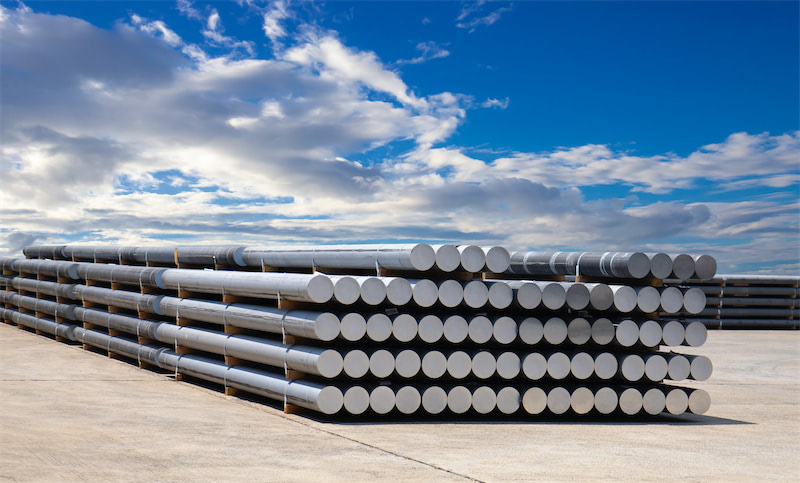For many years, the aircraft and aerospace industries have heavily depended on using aluminium alloys. The pioneering aircraft would not have been able to achieve flight without applying aluminium alloys in their engines. The Sputnik satellite, launched by Soviet Russia (presently Russia), successfully endured its journey through the scorching outer atmosphere and into space due to its aluminium-based construction. Even in contemporary times, NASA continues to employ an advanced aluminium-lithium hybrid in the cutting-edge Orion spacecraft.
Aluminium alloys for aerospace applications
Aluminium alloys play a pivotal role in engineering commercial aeroplanes and intricate space-bound shuttles. These alloys are most frequently utilized in constructing fuselages, wings, and supporting structures, providing an array of advantages for aircraft and spaceflight engineering fields. A wide range of aluminium alloys, denoted by their AA designations, are accessible for the aerospace sector, with each alloy tailored to provide distinct features and compositions to address specific application requirements:
AA 7068: The most robust alloy currently in use seamlessly marries exceptional strength with minimal weight, rendering it a prime choice for military applications demanding materials capable of enduring the harshest of environments.
AA 7050: One of the aerospace industry's most coveted alloys surpasses AA 7075 in corrosion resistance and significantly excels in durability.
AA 7075: Comprising primarily of zinc, aluminium alloy 7075 has found extensive use in diverse aircraft components dating from history, and it continues to be a widely favoured alloy in contemporary manufacturing due to its robust strength akin to steel and ease of machinability.
AA 1100, AA 1145, and AA 3003: Fin stock manufacturing commonly utilizes various techniques to achieve highly efficient heat transfer, among other benefits.
AA 5052: This alloy, belonging to the non-heat-treatable category, stands out as the most robust option. It boasts excellent flexibility and can easily take on various shapes and forms. Additionally, AA 5052 demonstrates exceptional resistance to saltwater corrosion when employed in marine environments, making it an ideal choice.
AA 6061: This alloy is widely popular among amateur and hobbyist aircraft builders and finds frequent use in the aerospace sector for crafting wings and fuselages.
AA 2024: Mainly consisting of copper, AA 2024 is frequently employed to achieve excellent strength-to-weight ratios. It finds its most common application in the fabrication of wings and fuselages, owing to the stringent tensile strength demands placed on these critical components.
AA 2014: It is the second-most favoured alloy in aerospace engineering and boasts remarkable strength and durability. Its primary drawback, however, is its limited resistance to corrosive elements. Consequently, AA 2014 is typically employed for the internal components of aircraft rather than in their external structural factors.
Global Aluminium Industry Key Trends 2030
Conclusion
In aerospace applications, aluminium alloys are chosen to address the challenges of sub-zero temperatures experienced in the frigid vacuum of space. Conversely, aluminium alloys used in aircraft construction are favoured for their robustness and resistance to various forms of corrosion. The exceptional stability of these alloys makes them well-suited for use in mechanical components, which further benefit from aluminium's remarkable electrical conductivity.
source:https://www.alcircle.com/news/aluminium-alloys-for-aerospace-applications-exploring-high-performance-alloys-100399
Aluminium alloys for aerospace applications: Exploring high-performance alloys
For many years, the aircraft and aerospace industries have heavily depended on using aluminium alloys.
Data Source Statement: Except for publicly available information, all other data are processed by SMM based on publicly available information, market communication, and relying on SMM‘s internal database model. They are for reference only and do not constitute decision-making recommendations.
For any inquiries or to learn more information, please contact: lemonzhao@smm.cn
For more information on how to access our research reports, please contact:service.en@smm.cn



